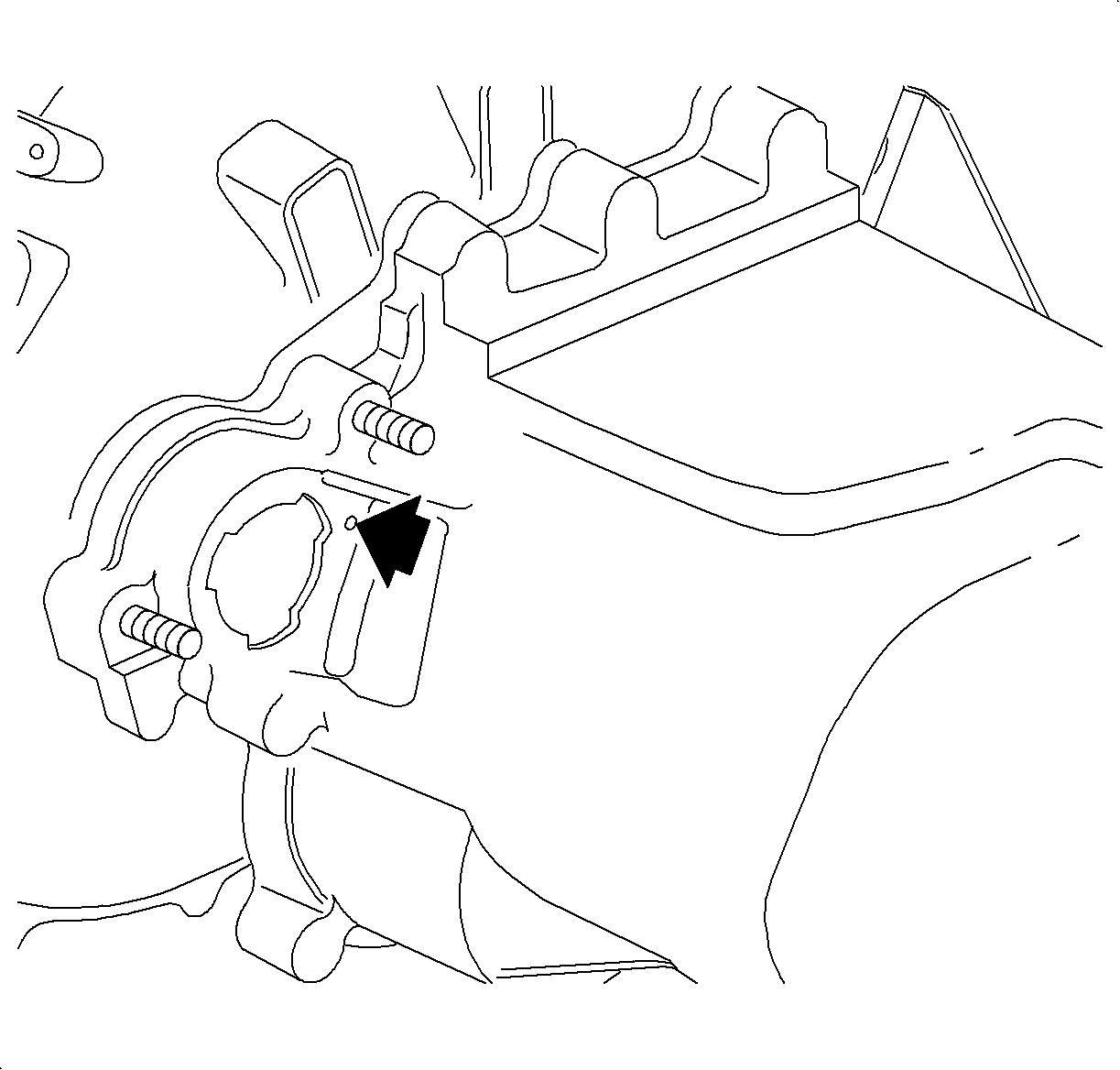
Important: The clutch master and actuator cylinder assembly is to be serviced as a complete
unit. It is a sealed unit and has been filled with fluid and bled of air at the factory.
Individual components of the system are not available for service, except the slave
cylinder actuator pushrod plastic retainer strap.
Measure fork travel through access hole.
Method 1:
| • | Using a caliper, measure fork travel through small access hole indicated
by arrow in illustration. |
| • | Subtract full-down position from full-up position to determine clutch
fork travel. |
- Method 2:
| 1.1. | Using a piece of round wire rod, mark the full-up and full-down position
on the rod. |
| 1.2. | Measure the distance between the two marks to determine the clutch fork
travel. |
| • | If fork travel is less than 10.80 mm (0.43 in.) travel is insufficient. |
| • | If fork travel is less than 10.80 mm (0.43 in.), check the following: |
| | Important: The first three bullets require clutch master and actuator cylinder assembly
replacement.
|
| • | Fluid leaks in hydraulic system. |
| • | Damage to front of dash. |
| • | Damaged master/slave cylinder. |
| • | Master/slave cylinder improperly installed. |
- Measure pedal travel. Pedal travel should be 117 mm - 137 mm
(4.6 - 5.4 in.).
| • | If pedal travel is insufficient, check for: |
| - | Carpet or floor mat under pedal. |
| - | Faulty bushing/damaged pedal. |
| • | If fork travel and pedal travel are ok and clutch hydraulics are functioning
properly, check for: |
| - | Damaged clutch housing cover assembly (pressure plate). |

